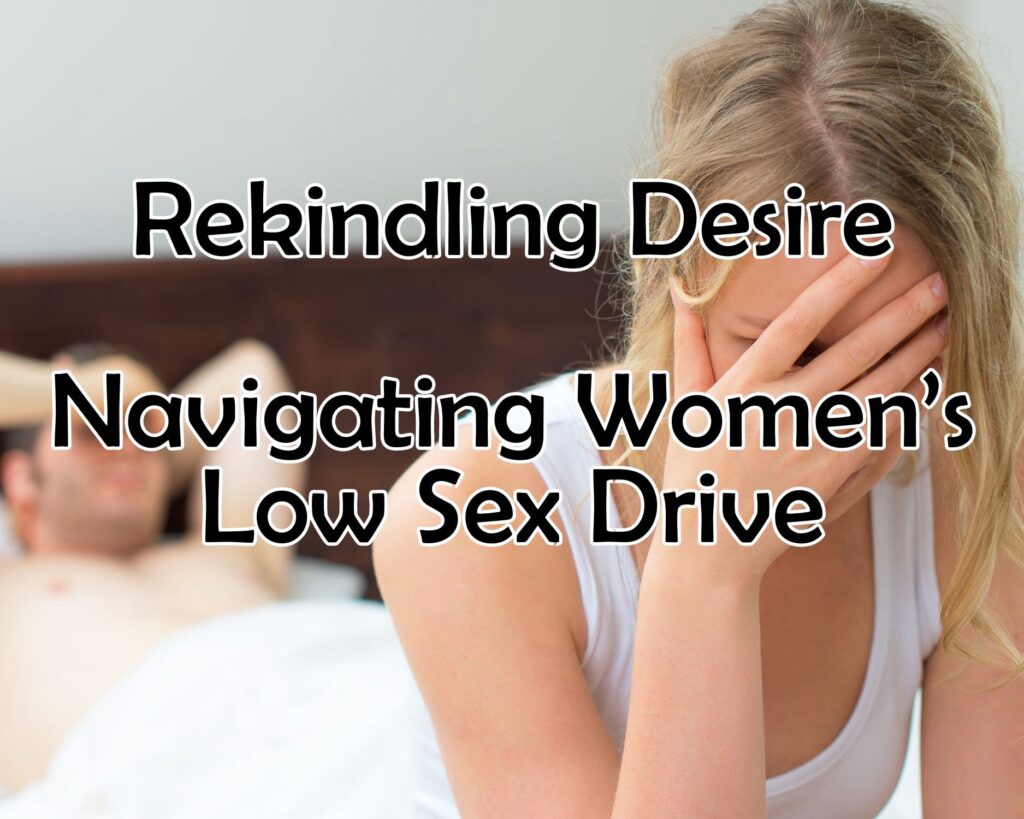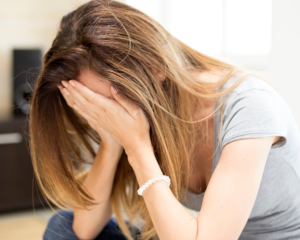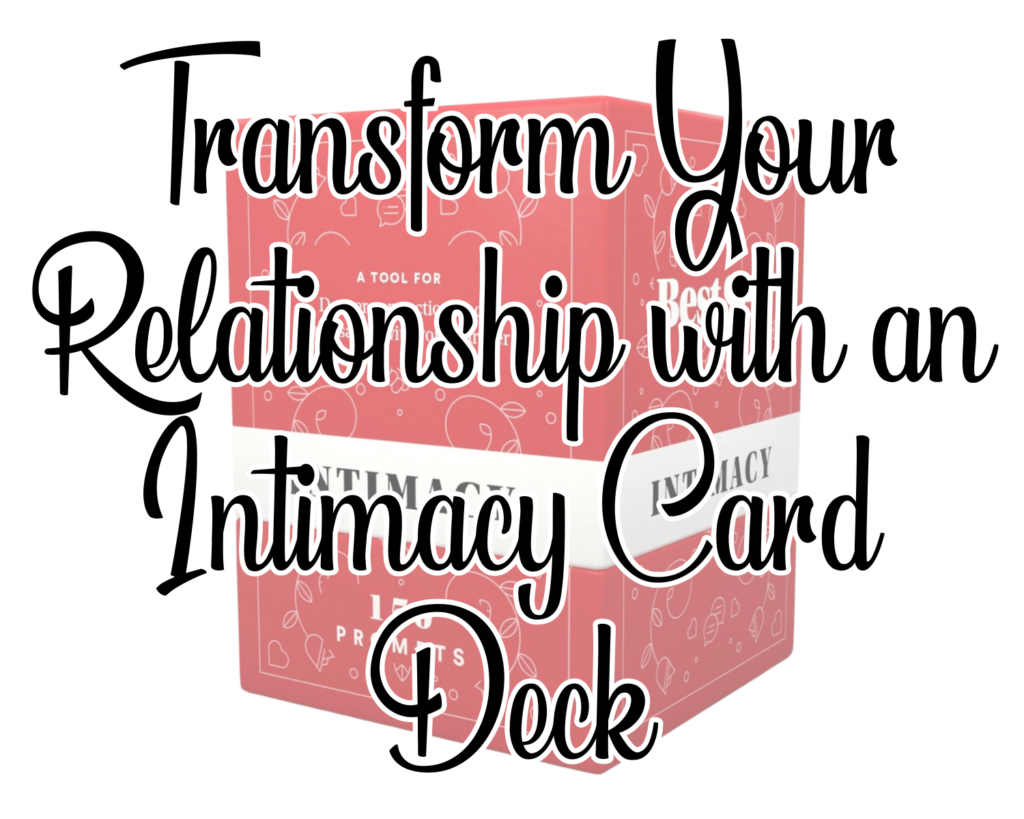In the realm of human experience, few topics are as shrouded in mystery and misconception as women’s sex drive. It’s a deeply personal, often fluctuating aspect of life, influenced by an intricate web of factors that interplay uniquely for each individual. To comprehend women’s libido is to acknowledge its complexity and the profound impact it has on a woman’s sense of self and her relationships. If you are a woman with low sex drive, you will find this content very useful.

Sexual desire in women isn’t a static force; it’s a dynamic and multifaceted phenomenon. Unlike the linear and more predictably driven libido often attributed to men, female sexuality tends to be more nuanced. It’s a symphony of emotional, physical, and psychological elements, each with its own influence and each capable of changing over time.
At its core, women’s libido is deeply intertwined with emotional well-being. It’s not merely a physical urge but a holistic experience that encompasses mind, body, and spirit. For many women, sexual desire is ignited not just by physical stimuli but by a complex array of factors including emotional intimacy, mental stimulation, and a sense of connection with their partner.
This emotional depth, however, also makes women’s sex drive more susceptible to the ebbs and flows of life’s circumstances. Stress, for instance, can act as a formidable barrier to sexual desire. The demands of daily life, from career pressures to family responsibilities, can accumulate and weigh heavily on a woman’s libido. Likewise, emotional upheaval, whether from relationship difficulties or personal struggles, can dampen sexual desire, transforming what was once a source of joy into a matter of indifference or anxiety.
Pro Tip From Experience: Using an intimacy deck of cards can be super helpful in your relationship!
Understanding women’s sex drive also means acknowledging the physiological players in this complex dance. Hormones, especially estrogen and progesterone, play a significant role in modulating libido. The natural fluctuations of these hormones throughout different life stages – such as menstruation, pregnancy, and menopause – can cause corresponding shifts in sexual desire. For some, these changes are subtle; for others, they are more pronounced, deeply affecting their sexual self and experiences.
Moreover, the societal and cultural narrative surrounding female sexuality often adds another layer of complexity. Women’s sexual desires have historically been misunderstood, stigmatized, or ignored, leading to a lack of meaningful discourse and understanding. This societal backdrop can influence how women perceive their own sexual desires and how freely they feel they can express them.

Common Causes of Low Libido in Women
Diving into the causes of low libido in women is akin to embarking on a journey through a complex and often uncharted territory. This decrease in sexual desire can be attributed to a myriad of factors, each interweaving with a woman’s unique life tapestry.
- Hormonal Changes: Hormones are often at the forefront of discussions about women’s libido. Fluctuations in estrogen and progesterone, particularly during life events such as menstruation, post-pregnancy, and menopause, can significantly impact sexual desire. For instance, the postpartum period is notorious for hormonal upheaval, often accompanied by a natural dip in libido. Similarly, the transition into menopause can bring about a decrease in estrogen levels, leading to changes in sexual desire and response.
- Mental Health: The mind is a powerful influencer of sexual desire. Mental health issues such as anxiety, depression, and stress are common culprits behind a reduced libido. The weight of these conditions can dampen sexual interest, transforming it from a source of pleasure to one of indifference or distress. Additionally, past trauma, especially sexual trauma, can have a profound and lasting impact on a woman’s sexual desire.
- Physical Health and Medications: Various medical conditions and medications can also affect libido. Chronic illnesses, such as diabetes or heart disease, can impact sexual function and desire. Additionally, certain medications, including antidepressants and birth control pills, are known to potentially decrease sexual desire as a side effect.
- Lifestyle Factors: Lifestyle choices and daily routines play a significant role in influencing libido. Factors such as fatigue, alcohol consumption, and a lack of physical activity can all contribute to a lower sex drive. In the hustle and bustle of daily life, the energy and inclination for sexual activity can wane, often overshadowed by other priorities and responsibilities.
- Relationship Dynamics: The health and dynamics of a relationship are integral to sexual desire. Emotional disconnect, unresolved conflicts, and poor communication can lead to a decrease in libido. Sexual desire thrives on emotional intimacy; when that connection is strained, desire often diminishes.
- Body Image and Self-Esteem: How a woman perceives her body can deeply impact her libido. Body image issues and fluctuations in self-esteem can make one feel less desirable, thereby affecting sexual interest and willingness to engage in sexual activities.
Understanding these causes is the first step in addressing and managing low libido. Each factor sheds light on the multifaceted nature of sexual desire and the importance of considering the whole person – body, mind, and emotional well-being – in any discussion about libido.

Psychological and Emotional Factors
Exploring the psychological and emotional landscape is crucial in understanding the nuances of women’s sex drive. These inner realms can be both a sanctuary and a battleground, significantly influencing a woman’s libido.
Emotional Well-being and Stress: The intricate link between emotional health and sexual desire cannot be overstated. Stress, whether from personal, professional, or societal pressures, acts like a shadow, often dimming the flame of desire. The mental load carried by many women – balancing work, family, and personal expectations – can leave little room for sexual expression or exploration.
Impact of Past Trauma: Trauma, particularly sexual trauma, casts a long, pervasive shadow over many aspects of life, including sexual desire. The journey of healing from such experiences is deeply personal and can profoundly affect one’s relationship with their own sexuality. Navigating this path requires patience, understanding, and often professional support.
Body Image and Self-Esteem: How a woman views her body plays a pivotal role in her sexual confidence and desire. Societal standards and personal perceptions of beauty and attractiveness can influence feelings of desirability and sexual self-esteem. When a woman feels uncomfortable or dissatisfied with her body, it can manifest as a reluctance or disinterest in sexual activity.
Relationship Health: The health of a woman’s intimate relationships is inextricably linked to her sexual desire. Emotional intimacy, feeling valued and understood, and effective communication are foundational to fostering a healthy sexual relationship. Conversely, unresolved conflicts, lack of emotional connection, or feeling undervalued can lead to a decline in sexual interest.
Navigating Life Transitions: Major life changes, such as becoming a mother, career shifts, or entering different life stages, can also influence a woman’s libido. These transitions can bring about shifts in identity and self-perception, which in turn can affect sexual desire.
By acknowledging and addressing these psychological and emotional factors, women can begin to understand and navigate the complexities of their sexual desire. It’s a journey that often requires compassion, self-reflection, and, in some cases, professional guidance to traverse the intricate landscape of the heart and mind.

Navigating Hormonal Changes
Hormonal fluctuations significantly impact women’s sexual health, affecting libido and overall well-being. Proper understanding and management of these changes are crucial for maintaining a healthy sex drive.
The Role of Hormones in Female Libido: Essential hormones such as estrogen, progesterone, and testosterone have a direct impact on sexual desire. Significant life stages, including pregnancy, postpartum, and menopause, are marked by hormonal shifts that can alter libido.
Menopause and Libido: Menopause marks a significant hormonal change, often leading to symptoms like vaginal dryness that can affect sexual desire and comfort.

Natural Hormonal Support: For those seeking natural ways to balance hormones and support mood, supplements can offer valuable assistance. A product like “Hormone Balance & Mood Support for Women”, featuring ingredients such as Tribulus Terrestris and Red Maca Root Extract, is designed to help nurture female drive and reduce mood swings. These ingredients are traditionally known for their benefits in hormonal health and vitality.
Incorporating Supplements into Daily Routine: Adding a supplement like “Hormone Balance & Mood Support for Women” to your daily regimen can be an effective strategy to manage hormonal changes impacting your sex drive. For more details and to make a purchase, visit Hormone Balance & Mood Support for Women. This supplement offers a holistic approach to navigating the hormonal changes that influence sexual desire.

Medical Considerations and Treatment Options
When experiencing a decrease in libido, it’s important to consider potential medical factors and explore treatment options. Seeking professional health advice can provide clarity and direction in addressing underlying issues.
Seeking Medical Advice: If you’re concerned about a persistent decrease in your sex drive, a conversation with your healthcare provider is a crucial first step. They can help identify any underlying medical conditions, such as hormonal imbalances or other health issues, that might be contributing to the change in libido.
Potential Treatments: Depending on the cause, treatment options may vary. Hormone therapy, for example, can be beneficial for those experiencing menopause-related decreases in libido. If the cause is related to medications, your doctor might suggest alternative prescriptions.
Addressing Vaginal Discomfort: For physical discomfort during sex, such as dryness often associated with hormonal changes, lubricants or estrogen creams can be effective. These solutions can greatly enhance comfort and, consequently, sexual desire.
Exploring Alternative Therapies: In addition to medical treatments, alternative therapies like acupuncture or herbal supplements can also be considered. However, it’s important to discuss these options with a healthcare provider to ensure they’re safe and suitable for your specific needs.
The Importance of a Holistic Approach: Often, a combination of treatments, lifestyle changes, and emotional support is most effective in addressing low libido. Understanding that this journey is deeply personal and may require a tailored approach is key.
Seeking medical advice is a proactive step in understanding and addressing changes in libido. A healthcare provider can offer invaluable guidance, helping navigate the complex interplay of factors affecting sexual desire.

Lifestyle Adjustments and Home Remedies
While medical treatments play a vital role, incorporating certain lifestyle adjustments and home remedies can also significantly enhance a woman’s sex drive. These natural approaches focus on overall well-being, which is intrinsically linked to sexual health.
Regular Physical Activity: Exercise is a powerful tool for boosting libido. It enhances overall energy levels, improves body image, and can increase sexual arousal. Activities like yoga and aerobic exercises are particularly beneficial for their stress-relieving and mood-enhancing effects.
Balanced Diet: A nutritious diet supports hormonal balance and overall health, which can positively impact libido. Foods rich in essential vitamins and minerals, as well as those that promote blood flow, like leafy greens and omega-3 fatty acids, are excellent choices.
Stress Management: Since stress is a common libido dampener, finding effective ways to manage stress is crucial. Techniques like mindfulness, meditation, and deep breathing exercises can help in maintaining a calm and relaxed state of mind.
Adequate Sleep: Quality sleep is essential for maintaining hormonal balance and reducing stress, both of which are important for a healthy sex drive. Establishing a regular sleep routine and creating a comfortable sleep environment can make a significant difference.
Herbal Supplements: Certain herbs are known for their libido-enhancing properties. Herbs like ginseng, maca, and Tribulus terrestris have been used traditionally to improve sexual function and desire. However, it’s important to consult with a healthcare provider before starting any herbal supplement.
Creating a Romantic Atmosphere: Sometimes, the right environment can spark desire. Setting up a romantic or relaxing atmosphere at home can help in creating the mood and enhancing intimacy.
These lifestyle adjustments and home remedies are not just about improving sexual health; they’re about enhancing overall well-being. Small, consistent changes can lead to significant improvements in libido and quality of life.

The Role of Therapy and Counseling
Often, the journey to reclaiming sexual desire involves exploring the mind as much as the body. Therapy and counseling can play a pivotal role in this exploration, offering valuable insights and strategies.
Therapy for Individual Insight: Personal therapy can help uncover and address psychological or emotional factors contributing to low libido, such as stress, anxiety, or past trauma. A therapist can provide a safe space to explore these issues and develop coping strategies.
Couples Counseling for Relationship Dynamics: If relationship issues are affecting libido, couples counseling can be beneficial. It provides a platform for open communication and understanding, helping both partners navigate the complexities of intimacy and desire.
Sex Therapy for Specific Concerns: Sex therapists specialize in addressing sexual issues. They can offer specific advice and exercises designed to improve sexual function and increase libido.
Encouraging Open Communication
Open and honest communication with your partner about sex drive and preferences is crucial. It fosters understanding and intimacy, essential components for a healthy sexual relationship. Discussing your needs, desires, and concerns can help both partners feel more connected and responsive to each other’s needs.
Questions and Answers
To further clarify this topic, here are answers to some common questions:
How can I improve my libido naturally? Consider lifestyle changes such as regular exercise, a balanced diet, stress management techniques, and adequate sleep. Supplements like “Hormone Balance & Mood Support for Women” can also support hormonal balance and improve mood, potentially enhancing libido.
Is it normal for libido to fluctuate? Yes, it’s completely normal for sexual desire to vary over time. Factors like stress, hormonal changes, relationship dynamics, and mental health can all influence libido.
When should I seek professional help for low libido? If low libido is causing distress or affecting your relationship, it’s a good idea to consult a healthcare provider. They can help determine if there are underlying medical or psychological causes that need addressing.
Understanding and addressing low libido in women involves a holistic approach that considers physical, emotional, and relational factors. From exploring natural supplements like “Hormone Balance & Mood Support for Women” to engaging in therapy and open communication, there are numerous paths to enhancing sexual desire. Remember, every woman’s journey is unique, and seeking the right support and treatment is key to rediscovering the joys of a fulfilling sexual life.
As an Amazon Associate we earn from qualifying purchases through some links in our articles.




